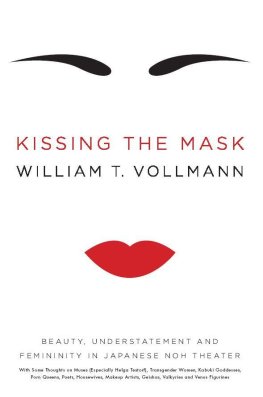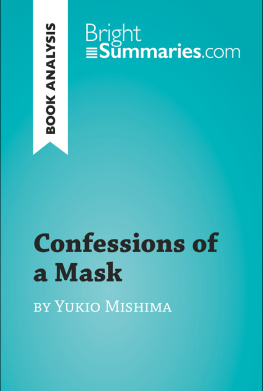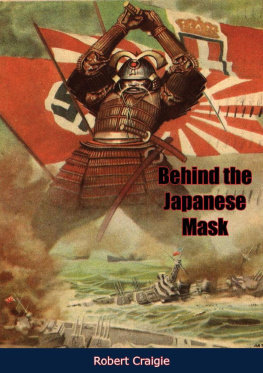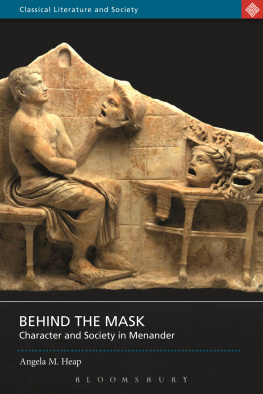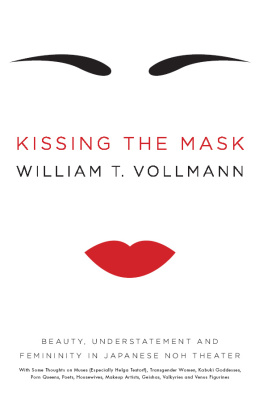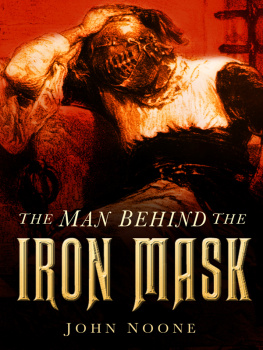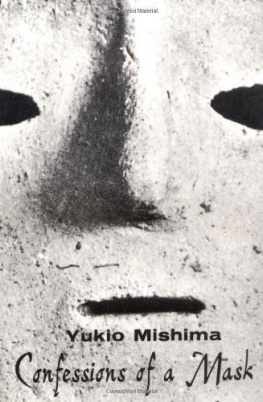BEHIND THE JAPANESE MASK
Written by His Majestys Ambassador to Japan immediately before the outbreak of the World War II, this book charts the sequence of events that led to the outbreak of the War, examining the intricacies of the struggle between the forces that favoured the war and those who opposed it. The book contains much personal information on the situation in Japan and the main chronicles witnessed.
BEHIND THE JAPANESE MASK
A BRITISH AMBASSADOR IN JAPAN, 1937-1942
Robert Cragie
First published in 2004 by
Kegan Paul International
This edition first published in 2009 by
Routledge
2 Park Square, Milton Park, Abingdon, Oxon, OX14 4RN
Simultaneously published in the USA and Canada
by Routledge
270 Madison Avenue, New York, NY 10016
Routledge is an imprint of the Taylor & Francis Group, an informa business
Kegan Paul, 2004
Transferred to Digital Printing 2009
All rights reserved. No part of this book may be reprinted or reproduced or utilised in any form or by any electronic, mechanical, or other means, now known or hereafter invented, including photocopying and recording, or in any information storage or retrieval system, without permission in writing from the publishers.
British Library Cataloguing in Publication Data
A catalogue record for this book is available from the British Library
ISBN 10: 0-7103-0876-0 (hbk)
ISBN 13: 978-0-7103-0876-4 (hbk)
Publishers Note
The publisher has gone to great lengths to ensure the quality of this reprint but points out that some imperfections in the original copies may be apparent. The publisher has made every effort to contact original copyright holders and would welcome correspondence from those they have been unable to trace.
CONTENTS
List of Illustrations
THE RT. HON. SIR ROBERT CRAIGIE, G.C.M.G., C.B.
PREFACE
THIS BOOK IS IN NO SENSE AN OFFICIAL RECORD. IT IS RATHER AN ATTEMPT, made without reference to official documents and after three years of mature reflection, to disentangle from avoidable detail the sequence of political events in Japan which led up to the war; to record the main developments in Anglo-Japanese relations during that time; and to follow the intricacies of the struggle in Japan between those who favoured this war of aggression and those who worked against it. Inter-spersed with political matters I have given accounts of our personal experiences, not because I regard them as intrinsically important, but rather in the hope that they may help to give body to the general impressions formed during those five critical years in Japan. The views expressed are purely my own and in no way commit His Majestys Government.
Know thine enemy is a good precept for those who have been engaged on a life-and-death struggle with a foe who is as inscrutable as he has often shown himself to be unscrupulous. If this book can add but a little to the sum of that knowledge, I shall be more than satisfied.
Most of the book having been written while the war against Japan was still in progress, I have found myself hedged in by many inhibitions ; every care had to be taken not to say anything which might even in the slightest degree hamper our war effort or anything which would expose to greater danger than that in which they already stood those friends in Japan who worked so hard to avert the present war; accounts of events, accurate in themselves, which the Japanese could distort for their own purposes had to be omitted. All such material must await a more opportune season.
I have endeavoured to give a picture of the leading public men who have occupied the Japanese political stage for the past twenty-five years. Their political record is writ large for all to read and I do no more than add a personal touch to that record. Even though some of the Japanese leaders whom I have described in some detail will not return to public life, their characteristics merit study if only because their successors in the Japan of to-day and the Japan of to-morrow are likely to be cast in much the same mould. Their idiosyncrasies are, like history, apt to repeat themselves.
Where I have tried to look into the future, I have done so very tentatively. It is dangerous to be dogmatic in this matter, but it is unwise for us as a nation to be unprepared or uninterested. The realization of all our great schemes of social security and post-war reconstruction depend, amongst other things, on the maintenance of our great Colonial Empire, its political evolution and its economic development. Within the British Commonwealth of Nations, British Colonial territories in the Far East will play an all-important part in the future. But in order that our handling of this great Eastern Colonial problem may be more intelligent and altruistic than it has, perhaps, been in the past, we must seek to understand also the problems and needs of China and Japan. It is all one vast stage and I have sought to lift a small corner of the curtain which still seems to hide it from the gaze of Western eyes.
R. L. C.
December, 1945.
CHAPTER I
EARLY CONTACTS AND IMPRESSIONS
AUGUST WAS NOT THE BEST MONTH TO CHOOSE FOR MAKING THE LONG Odyssey to Japanbut the choice was not ours. It was hot in the States, hotter still in Canada, and hottest of all on the blazing seas of the Pacific. Apart from the addresses which I was delivering at a number of towns in Canada on the way through and the opportunity thus afforded to sound Canadian opinion on Far Eastern questions, I had ample leisure to reflect, somewhat moistly, on the redoubtable mission with which I had been entrusted, and to turn over in my mind such knowledge as I had acquired of the people among whom we were now to live.
This was not my first visit to Japanwhen I was seven years old I had accompanied my mother and sister on a visit to the Far East, where my father was in command of H.M.S. Hyacinth.
Our headquarters were in Hong Kong, but each summer we visited Japan, and I have the happiest memories of those holidays spent for the most part in a picturesque Japanese house near the mountain resort of Hakoni. It was then only twenty years since Japan had emerged from her long era of feudalism and isolationism, and to my childish eye the separation between Eastern and Western modes of life and thought still seemed to be complete; but in fact the process of Western civilization was proceeding apace. The infiltration from the West of ideas and cultures, goods and materials, was approaching its zenith. Japan had decided to learn all the West had to teach. And the welcome to the foreigner was in those days correspondingly gracious. I had a memory of courteous, considerate people bent on making us comfortable. I remember the devotion of my sisters Japanese amah. And yetand yeteven in those days I realized that one never seemed to get below the surface of smiling politeness. Nowhere in Japan did I make a friend in the way I promptly did of Ah Choy, the Chinese servant whose special job it was to look after me while we were out East. Here was a real human being, capable of entering con amore into all ones childish joys and sorrows, full of good stories and ready at all times to embark on those little adventures which are the salt of life to the young. My last memory of Ah Choy was of an erect figure, clad in immaculate Chinese attire, weeping unashamedly on the quay at Hong Kong as our ship gathered way on our homeward journey.





